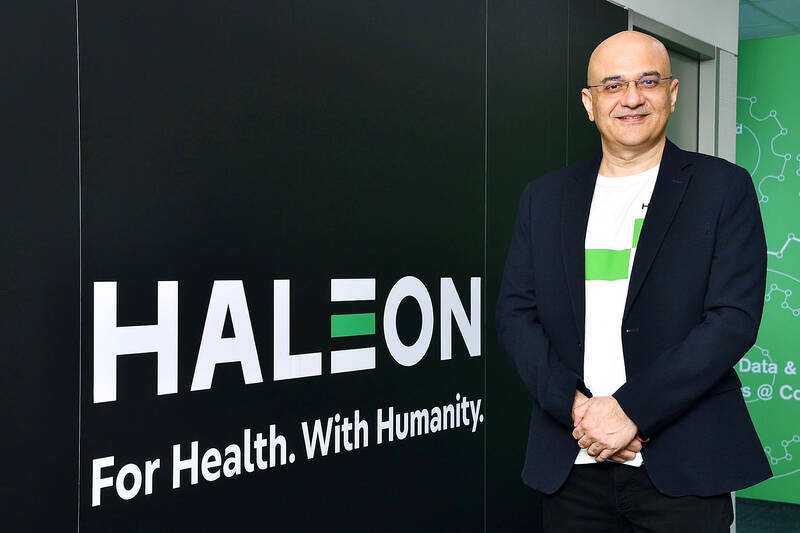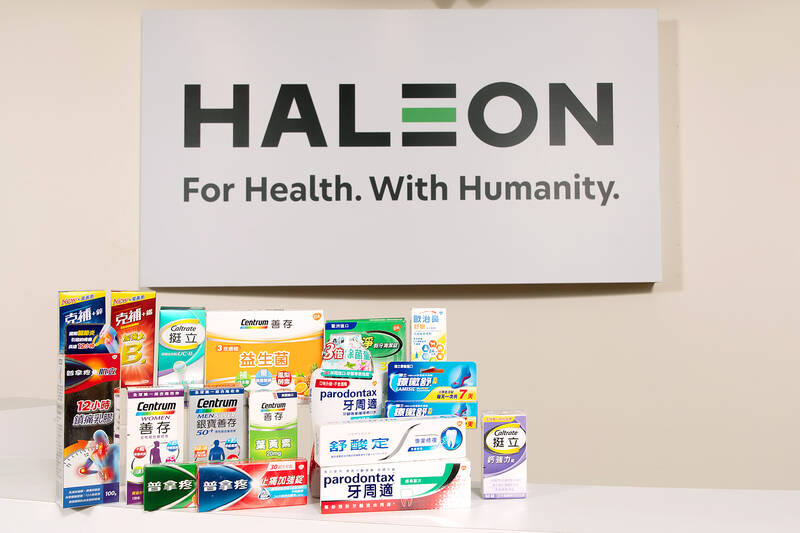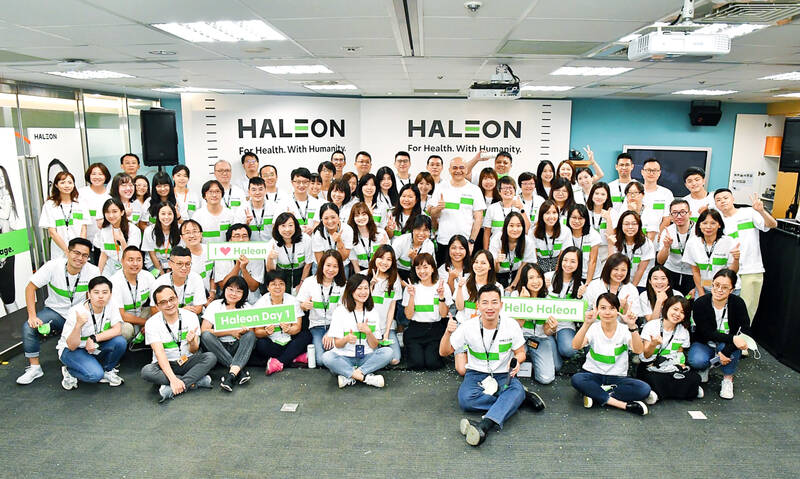With the global aging population and awareness of the importance of health on the rise, GSK plc has started a spin-off Consumer Health business named Haleon to deliver better everyday health with humanity.
Ritesh Pandey, general manager of Haleon Taiwan, says that the increase in health awareness today has captured people's attention, making them more aware of the importance of both physical and mental health, enhancing their sense of well-being.

Photo courtesy of Haleon Taiwan
With more people paying attention to self-care to improve their everyday health, the healthcare market is now seeing rapid growth. The healthcare supplement market in Taiwan is estimated to be around NT$159.6 billion (USD 5.1 billion) in 2021, with a growth rate of 5.6 %.

Photo courtesy of Haleon Taiwan
In addition to healthcare supplement, according to a survey conducted by Polls Market Research Consultancy this year, nearly half of the public starts to keep over-the-counter medicines at home after the COVID-19 pandemic, with over half gets focusing on improving health more through enhanced personal and environmental hygiene, exercise.
To help people maintain their everyday health more effectively , Haleon continues to develop and optimize its product portfolio based on two competitive advantages“deep human understanding”and“trusted science”;three behaviors: “Keep it human,” understanding consumers with humanity; “Do what matters most” focusing on innovating; and “Go beyond,” reacting to global trend quickly and outperforming goals.

Photo courtesy of Haleon Taiwan
In Taiwan, Haleon’s product portfolio spans five major categories : Oral Health, Pain Relief, Respiratory Health, Digestive Health, Vitamins, Minerals and Supplements (VMS), such as Centrum, Caltrate, Sensodyne and Panadol.
General manager of Haleon Taiwan Ritesh Pandey says that Haleon would continue to move forward, aiming to empower 50 million people a year by 2025 to improve their everyday health.
(Advertorial)

Three experts in the high technology industry have said that US President Donald Trump’s pledge to impose higher tariffs on Taiwanese semiconductors is part of an effort to force Taiwan Semiconductor Manufacturing Co (TSMC, 台積電) to the negotiating table. In a speech to Republicans on Jan. 27, Trump said he intends to impose tariffs on Taiwan to bring chip production to the US. “The incentive is going to be they’re not going to want to pay a 25, 50 or even a 100 percent tax,” he said. Darson Chiu (邱達生), an economics professor at Taichung-based Tunghai University and director-general of

‘LEGACY CHIPS’: Chinese companies have dramatically increased mature chip production capacity, but the West’s drive for secure supply chains offers a lifeline for Taiwan When Powerchip Technology Corp (力晶科技) entered a deal with the eastern Chinese city of Hefei in 2015 to set up a new chip foundry, it hoped the move would help provide better access to the promising Chinese market. However, nine years later, that Chinese foundry, Nexchip Semiconductor Corp (合晶集成), has become one of its biggest rivals in the legacy chip space, leveraging steep discounts after Beijing’s localization call forced Powerchip to give up the once-lucrative business making integrated circuits for Chinese flat panels. Nexchip is among Chinese foundries quickly winning market share in the crucial US$56.3 billion industry of so-called legacy

Hon Hai Precision Industry Co (鴻海精密) is reportedly making another pass at Nissan Motor Co, as the Japanese automaker's tie-up with Honda Motor Co falls apart. Nissan shares rose as much as 6 percent after Taiwan’s Central News Agency reported that Hon Hai chairman Young Liu (劉揚偉) instructed former Nissan executive Jun Seki to connect with French carmaker Renault SA, which holds about 36 percent of Nissan’s stock. Hon Hai, the Taiwanese iPhone-maker also known as Foxconn Technology Group (富士康科技集團), was exploring an investment or buyout of Nissan last year, but backed off in December after the Japanese carmaker penned a deal

WASHINGTON POLICY: Tariffs of 10 percent or more and other new costs are tipped to hit shipments of small parcels, cutting export growth by 1.3 percentage points The decision by US President Donald Trump to ban Chinese companies from using a US tariff loophole would hit tens of billions of dollars of trade and reduce China’s economic growth this year, according to new estimates by economists at Nomura Holdings Inc. According to Nomura’s estimates, last year companies such as Shein (希音) and PDD Holdings Inc’s (拼多多控股) Temu shipped US$46 billion of small parcels to the US to take advantage of the rule that allows items with a declared value under US$800 to enter the US tariff-free. Tariffs of 10 percent or more and other new costs would slash such